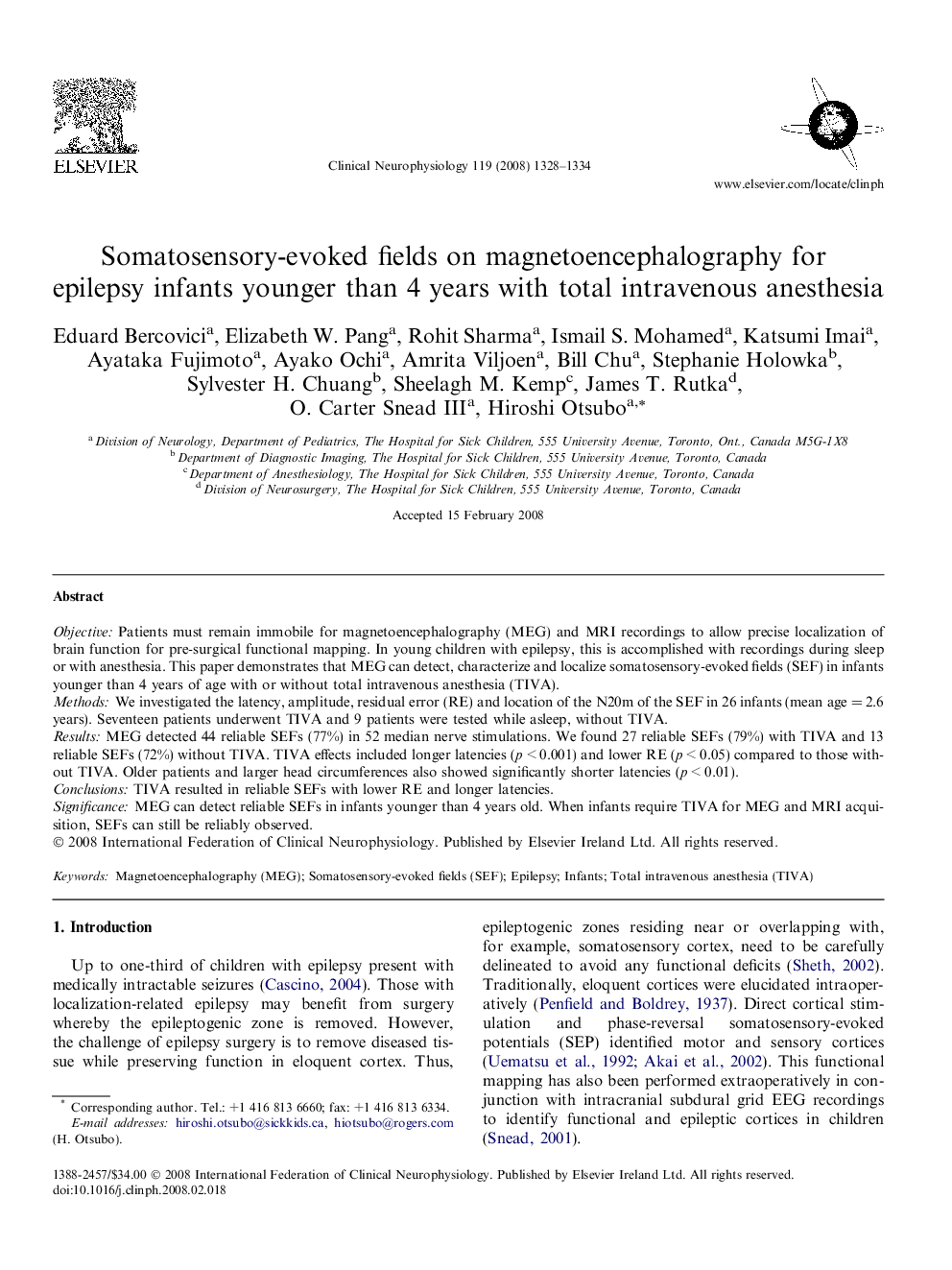| کد مقاله | کد نشریه | سال انتشار | مقاله انگلیسی | نسخه تمام متن |
|---|---|---|---|---|
| 3047451 | 1185057 | 2008 | 7 صفحه PDF | دانلود رایگان |

ObjectivePatients must remain immobile for magnetoencephalography (MEG) and MRI recordings to allow precise localization of brain function for pre-surgical functional mapping. In young children with epilepsy, this is accomplished with recordings during sleep or with anesthesia. This paper demonstrates that MEG can detect, characterize and localize somatosensory-evoked fields (SEF) in infants younger than 4 years of age with or without total intravenous anesthesia (TIVA).MethodsWe investigated the latency, amplitude, residual error (RE) and location of the N20m of the SEF in 26 infants (mean age = 2.6 years). Seventeen patients underwent TIVA and 9 patients were tested while asleep, without TIVA.ResultsMEG detected 44 reliable SEFs (77%) in 52 median nerve stimulations. We found 27 reliable SEFs (79%) with TIVA and 13 reliable SEFs (72%) without TIVA. TIVA effects included longer latencies (p < 0.001) and lower RE (p < 0.05) compared to those without TIVA. Older patients and larger head circumferences also showed significantly shorter latencies (p < 0.01).ConclusionsTIVA resulted in reliable SEFs with lower RE and longer latencies.SignificanceMEG can detect reliable SEFs in infants younger than 4 years old. When infants require TIVA for MEG and MRI acquisition, SEFs can still be reliably observed.
Journal: Clinical Neurophysiology - Volume 119, Issue 6, June 2008, Pages 1328–1334